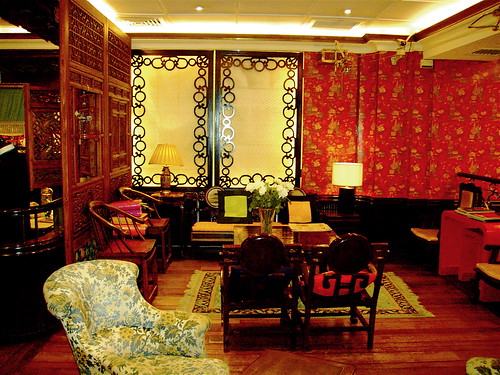
Globalization in the 21st century has made it possible for us to become open to fresh and unique concepts in decorating and designing our homes. One of the design themes we have learned to admire is Chinese interior design.
When we look at Oriental homes, we admire them for their opulent and exotic beauty. At first glance, the setup seems easy to reconstruct, but in reality, very few people have a deep understanding of the basics of Chinese interior design.
Dating back thousands of years, Chinese interior design is founded on the principles of energy, simplicity, and nature. They strive to achieve surroundings characterized by tranquility and peace, and since Chinese culture is steeped in tradition, the elements in Chinese interior design should also reflect the values of the people living in the home.
Chinese Interior Design Fundamentals
One of the most basic principles to be observed in Chinese interior design is simplicity. For them, a room should not be filled with all sorts of common decor. What is important is the proper placement of a few valuable and beautiful objects in a room to achieve optimal effects.
By using just a few focal points, the rooms remain light, roomy, and simple, yet still reflective of the owner's impeccable taste.
Another element commonly used in Chinese interior design is the use of screens. These items are both decorative and functional - they not only enliven a room but also serve to keep one's privacy.
Many years ago, these frames were constructed with light materials, making use of latticework serving as a grid for the sheer fabric or paper. Today, the screens can be made of various materials such as bamboo or expensive wood decorated with delicate ivory inlay.
A dressing screen may also have foldable panels to make it fit in various areas of the home. It's a very inexpensive way to add a touch of Asia to your simple but stylish Chinese interior design. The great thing about screens is that depending on the design, they can also be used for other interior design themes.
What Is Feng Shui?
Most Chinese interior design principles are based on Feng Shui, or the ancient tradition of arrangement of space to create a harmonious environment. It is a spiritual discipline based on guidelines that, upon examination, are actually compatible with the traditional architectural techniques used today.
When Feng Shui is implemented in Chinese interior design, it is believed that the residents will fully benefit from the meticulously arranged furniture and living spaces in terms of wealth, love, health, and happiness.
Due to its increasing popularity, homeowners will now find it easy to locate a Feng Shui expert with whom they can consult prior to tackling a Chinese interior design
project. They can also look for hundreds of resources on the Internet to help them organize their space and determine which arrangements would be best to attract positive "chi" or energy.
Making Use of Chinese Interior Design Details
You may opt for a total Chinese interior design look or choose a differently themed design using only a sprinkling of Chinese influences. One way to achieve this is by using a handful of valuable, perhaps ornate pieces, to serve as accents in a sparsely furnished room.
You can also make use of the screens which can easily be moved depending on its intended function in a particular area. It is also a wonderful idea to make use of a few pieces of Chinese decor which could serve as conversation pieces or for adding a splash of color to an otherwise staid room. Chinese pottery or colorful paintings can add an exotic look, and so could richly colored carpets or pillows.
Article Source: http://EzineArticles.com/633134




No comments:
Post a Comment